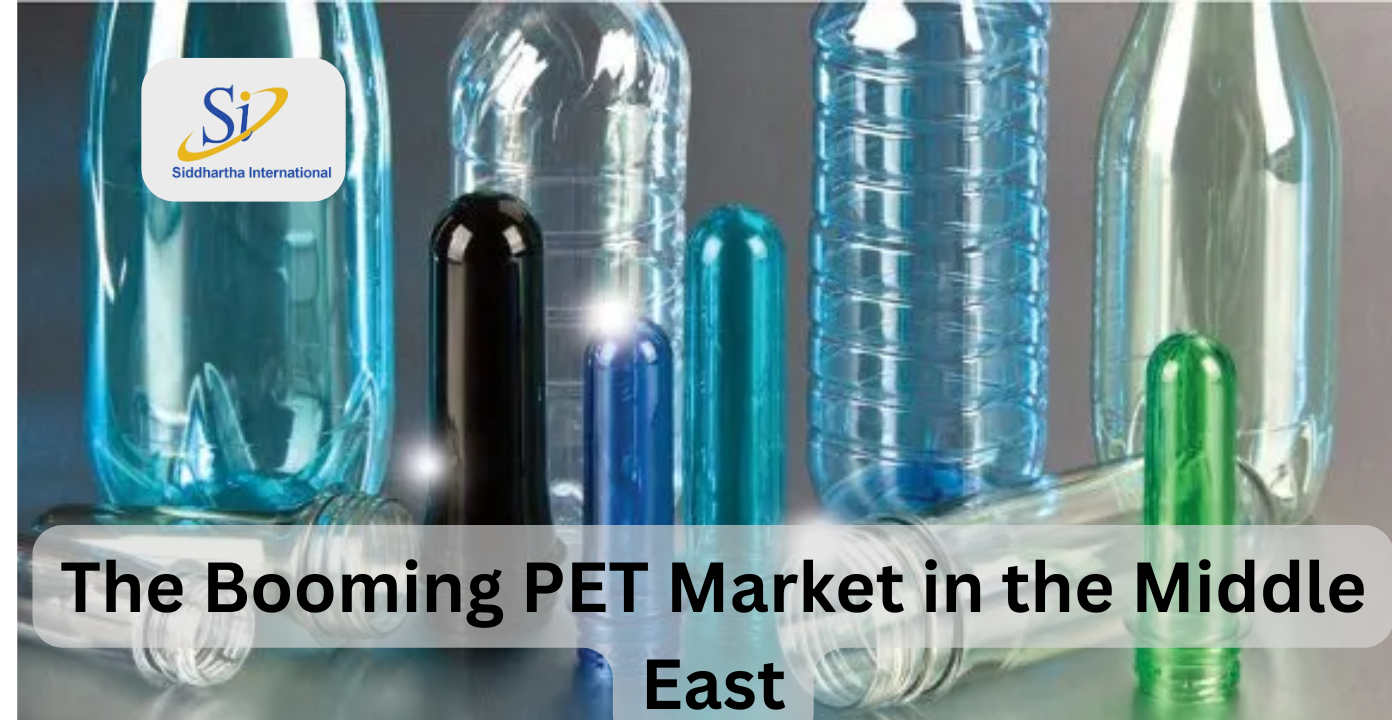
The Middle East's packaging industry is expanding fast, especially in the water, beverage, and oil sectors. As demand surges for hygienic, high-quality bottles, Indian PET preforms have emerged as a top solution. Known for their strength, clarity, and affordability, these preforms are reshaping supply chains across the Gulf.
Whether you're in the UAE, Saudi Arabia, Qatar, or Oman, choosing Indian suppliers means access to custom preforms, fast delivery, and globally recognized manufacturing excellence.
Consistent Quality Across Every Shipment
India's top manufacturers use high-grade PET resin and modern injection molding technology. Each preform is uniform, defect-free, and food-safe. Strict QC ensures clarity, weight tolerance, and neck finish precision.
Cost-Efficient Manufacturing Advantage
Thanks to low labor and utility costs, Indian suppliers offer lower prices without sacrificing quality. Bulk orders benefit from economies of scale, making Indian PET preforms 20–30% more cost-effective than other regions.
Wide Range of Preform Sizes & Colors
From 12g to 50g and neck sizes like 28mm PCO 1810/1881, 30/25, and 38mm, Indian factories produce preforms tailored for multiple uses. You can even choose from clear, green, blue, or custom-dyed preforms.
Bottled Water Industry
Demand for bottled water is massive in hot Middle Eastern climates. Indian preforms are lightweight yet strong, ideal for 250ml to 1.5L water bottles.
Edible Oil & Beverage Sectors
PET preforms are widely used in edible oil bottles and carbonated soft drink containers. Their non-reactive and food-safe properties make them ideal for consumables.
Household & Pharmaceutical Packaging
Pharmaceuticals and household cleaners require durable and leak-proof packaging. Indian PET preforms meet these standards with excellent barrier properties.
Neck Sizes, Weight, and Color Options
Custom molds, neck finishes, and gram weights give Middle Eastern brands full flexibility in designing bottles for specific branding or utility needs.
Lightweight vs. Standard PET Preforms
Lightweight preforms reduce material use and shipping cost while maintaining bottle strength. These are in high demand in eco-conscious Gulf markets.
Key Indian Export Hubs Supplying the Middle East
Mumbai, Ahmedabad, Hyderabad & More
Major PET preform exporters operate from cities with access to top seaports:
Mumbai (JNPT Port)
Mundra (Gujarat)
Chennai Port (Tamil Nadu)
These locations ensure fast, secure shipping to Jebel Ali, Dammam, Doha, and beyond.
Logistics & Delivery Timeline to Middle East Ports
Sea Freight vs. Air Freight Options
Sea freight: 15–22 days depending on port
Air freight: 3–7 days for urgent orders
Indian suppliers offer flexible Incoterms like FOB, CIF, and DDP.
Food-Grade & BPA-Free PET Resins
All Indian preforms are made from non-toxic, food-grade PET. Most are BPA-free, safe for water, oil, and carbonated beverages.
ISO, FDA, and HACCP Certifications
Reputable exporters are ISO 9001, ISO 22000, and HACCP certified. These meet the regulatory needs of Gulf countries.
Lightweight Preforms and Carbon Emission Savings
Less resin per bottle means less energy for production and shipping. Lightweight preforms contribute to greener supply chains.
Recyclable PET Materials from India
Most Indian suppliers support a circular economy with recyclable PET and closed-loop processing systems.
Import Process, Documents, and Support
Indian exporters assist with:
Commercial invoice
Packing list
Certificate of origin
Bill of lading / Airway bill
SGS or BV inspection reports (if needed)
Payment Terms & MOQ Flexibility
Most exporters accept:
LC at sight
TT (Telegraphic Transfer)
MOQ ranges from 300,000 to 500,000 units depending on size
The Middle East region, particularly UAE, Saudi Arabia, Oman, Qatar, Bahrain, and Kuwait, is witnessing significant growth in the FMCG and bottled water markets. With extreme weather, rising tourism, and increasing disposable incomes, the consumption of packaged water and beverages is climbing rapidly.
Local bottling companies need a consistent and cost-efficient supply of PET preforms to keep up with growing demand. However, local PET preform manufacturing is either limited or expensive. This has opened the door wide for Indian exporters.
Most Indian manufacturers offer a wide selection with:
Indian exporters ensure damage-free shipments using:
HDPE or LDPE inner liners
Strong corrugated cartons
Jumbo bags (for large shipments)
Wooden pallets shrink-wrapped
Container optimization to reduce per-unit freight cost
This is crucial for avoiding bottle defects or contamination during transit.
Q1. Are Indian PET preforms suitable for the Gulf’s hot climate?
Ans Yes, they are tested for high-temperature resistance and ensure excellent performance in desert environments.
Q2. What is the average cost per PET preform from India?
Ans Costs range between $0.015 to $0.04 depending on size, weight, and customization.
Q3. Which Middle Eastern countries are leading in PET production and consumption?
Ans Countries like Saudi Arabia, the UAE, and Egypt are among the leaders due to their industrial capabilities, petrochemical resources, and growing consumer markets.
Q4. Are there any sustainability concerns with PET usage?
Ans Yes, environmental concerns regarding plastic waste are prompting many governments and companies to invest in PET recycling technologies and promote circular economy practices.
Q5. How is the Middle East addressing PET recycling?
Several countries are investing in PET recycling plants, introducing waste management reforms, and encouraging public-private partnerships to enhance recycling rates.
Q6. What are the growth prospects for the PET market in the region?
The market is expected to continue growing due to economic diversification, increased export opportunities, and technological advancements in PET manufacturing and recycling.
Q7. Are foreign investors showing interest in the Middle Eastern PET market?
Yes, the region’s strategic location, growing consumer base, and favorable investment policies are attracting international investors and companies in the plastics and packaging sectors.
Q9. What challenges does the PET market face in the Middle East?
Challenges include environmental concerns, fluctuating raw material prices, lack of recycling infrastructure in some areas, and regulatory differences across countries.
Q10. How can businesses capitalize on this market boom?
Businesses can explore opportunities in manufacturing, recycling, packaging innovation, and forming partnerships with local distributors and government programs focused on sustainability.
Copyright © 2026 Siddhartha International All Rights Reserved.